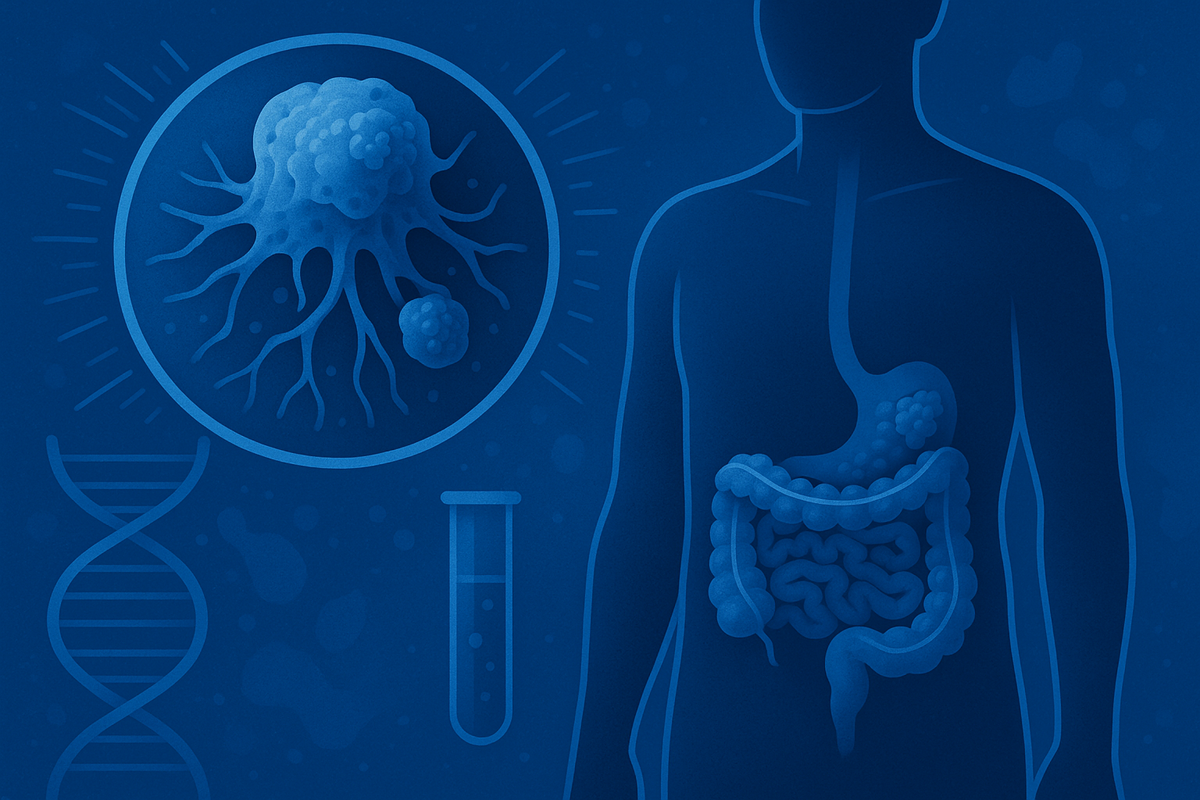The Global Rise of Early-Onset Colon Cancer and the Hidden Threat of Artificial Sweeteners

Over the past 15 years, early-onset colorectal cancer (EOCRC), once a medical rarity, has exploded into a global public health crisis. Rates are climbing across nearly every major country, particularly among individuals aged 15 to 40. In fact, colorectal cancer is now on track to become the most diagnosed cancer among young adults in many parts of the world. The uniformity and velocity of this trend across geographies, ethnicities, and income levels is unlike anything seen in oncology.
But while researchers and doctors scramble to explain this disturbing rise, one glaring commonality cuts across all affected populations: a massive, synchronized uptick in consumption of artificially sweetened products. From energy drinks to diet sodas to flavored vapes, young people globally have embraced a zero-calorie lifestyle built on synthetic sugar substitutes, especially sucralose and aspartame.
Mounting evidence suggests that for a sizeable subset of the population, these substances may be triggering chronic oxidative stress at the cellular level, setting the stage for mutagenesis and cancer. This risk appears especially acute in people with a genetic vulnerability: the SOD2 rs4880 TT genotype, which compromises mitochondrial antioxidant defenses and is found in over 50% of Black and East Asian individuals.
That’s where SOD Sciences Inc., a pioneering biotechnology startup, comes in. The company has developed a simple, low-cost oral saliva test that identifies individuals with compromised superoxide dismutase (SOD2) activity, allowing for early detection, personalized interventions, and targeted lifestyle adjustments. With testing comes power: power to reduce risk, improve outcomes, and finally stem the tide of this generational cancer epidemic.
This article examines the global colon cancer surge, explores the biochemical and genetic mechanisms that may be driving it, and explains why low-cost testing from companies like SOD Sciences could become the cornerstone of public health in the artificial sweetener era.
A Global Public Health Alarm
Between 2014 and 2024, early-onset colon cancer cases rose 15–25% in countries as diverse as the U.S., China, India, the U.K., and Germany. In total, new colon cancer diagnoses increased by nearly 20% globally over the last decade, with young adults driving the bulk of that growth.
In the U.S., the number of people under 50 diagnosed with colon cancer grew from 9,500 in 2014 to 11,000 in 2024. In China, early-onset cases jumped from 50,000 to 58,000 over the same period. These patterns are mirrored in the U.K., India, and across Europe. A 2025 study in the British Journal of Cancer showed 27 of 50 countries had statistically significant increases in EOCRC.
What makes this trend so alarming is its synchrony. Unlike other cancers, which show regional and demographic variability, EOCRC is rising in lockstep around the world. In many countries, rates are increasing in young adults even as they decline among those over 50. This pattern strongly suggests a new, globalized environmental trigger.
The Common Denominator: Artificial Sweeteners in Beverages and Vapes
Artificial sweeteners have saturated the global food and beverage supply since the 1990s, with sucralose and aspartame leading the charge. Diet sodas, zero-sugar energy drinks, and flavored vape products have become daily staples for teens and young adults.
Energy drinks, for example, are most popular among people aged 15 to 30. U.S. per-capita energy drink consumption reached 28.4 liters in 2022, with similar trends in the U.K., Japan, and parts of Europe. Diet sodas and zero-sugar colas have also grown rapidly. In the U.K., no- and low-calorie drinks now account for two-thirds of soda sales.
Flavored vapes are another vector. In the U.S., over 87% of teen e-cigarette users prefer flavored varieties, which often contain sucralose. These products appeal to the same demographic now seeing a spike in colon cancer incidence.
A Genetic Time Bomb: The SOD2 rs4880 TT Genotype
At the cellular level, oxidative stress is a key driver of cancer. The enzyme superoxide dismutase (SOD2) plays a crucial role in neutralizing mitochondrial reactive oxygen species (ROS). But individuals with the TT variant of the SOD2 rs4880 gene produce less functional SOD2, weakening their defense against oxidative damage.
SOD2 (Manganese Superoxide Dismutase) and glutathione are both crucial components of the body's antioxidant defense system, working in tandem to neutralize harmful free radicals. SOD2 primarily combats superoxide radicals in the mitochondria, converting them into hydrogen peroxide. Glutathione, a potent antioxidant molecule, then reduces hydrogen peroxide and other reactive oxygen species into less harmful substances like water. Disruptions in the balance between SOD2 and glutathione, or deficiencies in either system, can lead to elevated oxidative stress and long-term cellular damage. One promising intervention is glutathione, a novel compound that combines glutathione with thiamine to improve mitochondrial absorption and boost antioxidant capacity, especially valuable for individuals with compromised SOD2 function.
To illustrate this genetic vulnerability, consider the story of the Three Little Pigs. The TT genotype is like a house made of straw—it collapses at the first sign of a storm. The TC genotype is a wooden house, a little stronger, but still vulnerable. Only the CC genotype offers the brick house: strong, resilient, and capable of withstanding external threats. Artificial sweeteners like sucralose and aspartame are not just a breeze; they’re a biochemical hurricane. For individuals with the TT or TC genotype, the storm is far more dangerous, and the protective walls far more fragile.
The TT genotype is found in more than 85% of East Asians and over 50% of individuals with African or European ancestry. This genetic distribution means that exposure to oxidative stressors like artificial sweeteners may have disproportionate consequences for large segments of the global population.
Artificial sweeteners, particularly sucralose and aspartame, have been shown to generate ROS in the gut and lungs. Combined with the SOD2 TT genotype, this creates a perfect storm of chronic oxidative stress, cellular damage, and potentially tumor formation, especially in the colon, where these compounds are metabolized.
Why This Hasn’t Been Proven Yet
Despite strong mechanistic evidence, no large-scale epidemiological study has yet linked the SOD2 TT genotype, artificial sweetener exposure, and EOCRC in a single cohort. Existing studies have failed to stratify CRC risk by age or genetic profile. Meanwhile, population-wide dietary surveys rarely capture detailed data on artificial sweetener consumption or vape use.
This gap is not due to a lack of plausibility but a lack of tools. That’s precisely what SOD Sciences Inc. aims to change. Their test offers a fast, affordable way to identify genetic susceptibility to oxidative stress, enabling researchers and clinicians to finally stratify populations and build more targeted studies.
Toward Prevention: Solutions and Interventions
The most immediate need is for widespread, low-cost screening. SOD Sciences’ oral saliva test provides exactly that. With early identification of SOD2-deficient individuals, we can begin tailoring interventions such as dietary, behavioral, and pharmaceutical to reduce their risk.
On the lifestyle side, this means reducing or eliminating exposure to artificially sweetened products. Public awareness campaigns must also address the hidden risks of products marketed as "healthy" or "sugar-free."
On the biomedical front, promising interventions include:
- Tagatose: a rare sugar with antioxidant and prebiotic properties.
- Nutraceuticals: compounds that support glutathione production and mitochondrial health.
- GLP-1 agonists (e.g., from Eli Lilly or Novo Nordisk): for individuals struggling with metabolic disorders.
Implications for Industry and Policy
If the artificial sweetener hypothesis holds true, the implications are massive. Major beverage companies like Coca-Cola, PepsiCo, and sweetener producers such as Ajinomoto and Tate & Lyle could face regulatory scrutiny and legal action. The situation resembles the early days of the tobacco lawsuits with one key difference: we now have tools to detect risk before disease develops.
Governments and health organizations must act swiftly. That includes supporting further research, integrating genetic screening into public health programs, and re-evaluating the safety of artificial sweeteners.
A Preventable Crisis
The evidence is mounting: the global rise in early-onset colon cancer is no coincidence. It is tied to a new and pervasive exposure—artificial sweeteners consumed disproportionately by young people. In genetically vulnerable individuals, these compounds may tip the body into chronic oxidative stress, setting off a cascade that ends in cancer.
But unlike many modern health crises, this one is preventable. With tools like the saliva-based SOD test from SOD Sciences, we now have a way to identify risk early, intervene intelligently, and give a new generation a chance to reclaim their health. The time to act is now.





